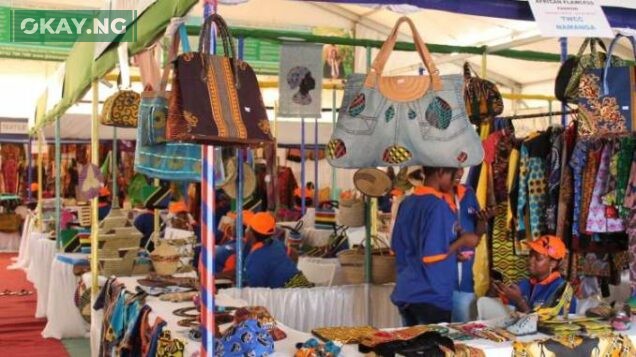The Standards Organisation of Nigeria (SON) is intensifying its efforts to enforce rigorous quality benchmarks, particularly focusing on the widely recognized ‘Made-in-Aba’ brands. This initiative, driven by the agency’s commitment to elevate local manufacturing, seeks to ensure that products bearing the Nigerian stamp of origin can compete on a global stage.
Aharanwa Chuks, SON’s Director for the South East Region, underscored the organization’s dedication to this cause, highlighting the pivotal role of the Mandatory Conformity Assessment Programme (MANCAP). This regulatory framework, he explained, is designed to certify that all locally produced goods adhere to the Nigerian Industrial Standards (NIS).
“This process includes inspecting production facilities, sampling products, and conducting quality tests to confirm compliance with NIS requirements. Successful manufacturers receive the MANCAP certification, which serves as a mark of adherence to national quality standards,” Chuks stated.
Essentially, MANCAP acts as a seal of approval, a testament to the manufacturer’s commitment to quality. For consumers, it offers a sense of security, knowing that the products they purchase have undergone stringent evaluations. For manufacturers, it represents an opportunity to differentiate themselves in a competitive market.
But beyond mere certification, SON’s efforts extend to empowering local manufacturers with the knowledge and tools necessary to elevate their products to internationally accepted quality levels. “For instance, leather manufacturers in Aba have been sensitised on standardisation practices to enhance the global competitiveness of their products,” Chuks noted. This outreach is crucial, as it directly addresses the practical challenges faced by small and medium-sized enterprises (SMEs), often the backbone of local economies.
As someone who has observed the dynamism of Nigerian markets, I understand the emotional and economic significance of this initiative. For many, ‘Made-in-Aba’ is more than just a label; it represents resilience, ingenuity, and the entrepreneurial spirit of a community. By standardizing these products, SON is not just enhancing their marketability; it is also investing in the livelihoods of countless individuals and families.
Read Also: NMDRA Bans Mega Fuel Tankers to Curb Accidents
The implications of this push for product standardisation are far-reaching. According to a report by the Nigerian Export Promotion Council (NEPC), enhanced quality control can significantly boost export potential, creating new avenues for economic growth and job creation. It’s not just about meeting local standards; it’s about unlocking access to regional and international markets.
However, the journey towards achieving consistent quality standards is not without its challenges. Resource constraints, logistical hurdles, and the need for continuous training and capacity building are just a few of the obstacles that manufacturers face. Addressing these challenges requires a collaborative effort, involving government agencies, industry associations, and the manufacturers themselves.
Ultimately, the SON’s initiative represents a strategic investment in the future of Nigerian manufacturing. By prioritizing quality and empowering local producers, the nation is taking a significant step towards building a more resilient and competitive economy.













